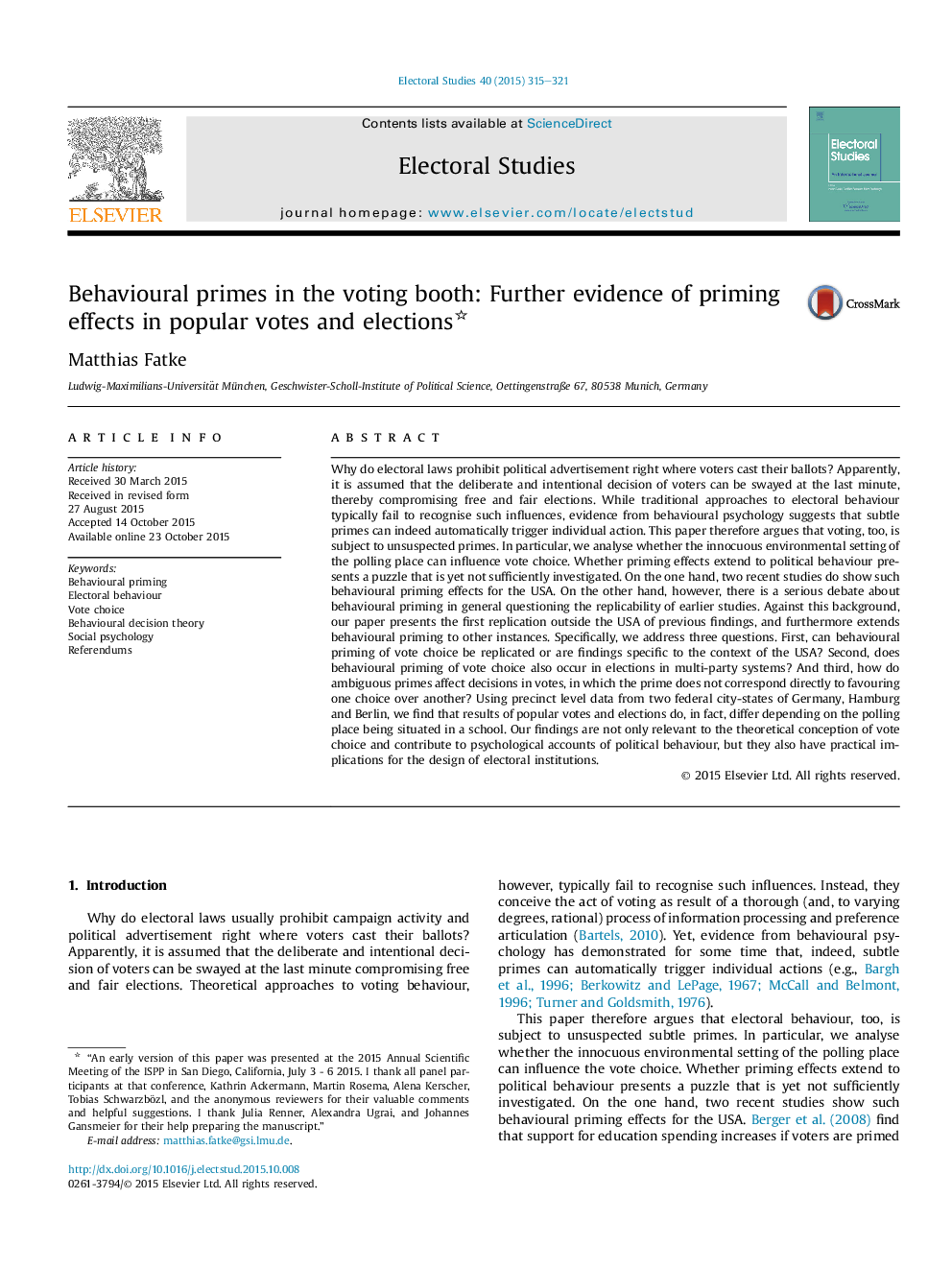| Article ID | Journal | Published Year | Pages | File Type |
|---|---|---|---|---|
| 7463916 | Electoral Studies | 2015 | 7 Pages |
Abstract
Why do electoral laws prohibit political advertisement right where voters cast their ballots? Apparently, it is assumed that the deliberate and intentional decision of voters can be swayed at the last minute, thereby compromising free and fair elections. While traditional approaches to electoral behaviour typically fail to recognise such influences, evidence from behavioural psychology suggests that subtle primes can indeed automatically trigger individual action. This paper therefore argues that voting, too, is subject to unsuspected primes. In particular, we analyse whether the innocuous environmental setting of the polling place can influence vote choice. Whether priming effects extend to political behaviour presents a puzzle that is yet not sufficiently investigated. On the one hand, two recent studies do show such behavioural priming effects for the USA. On the other hand, however, there is a serious debate about behavioural priming in general questioning the replicability of earlier studies. Against this background, our paper presents the first replication outside the USA of previous findings, and furthermore extends behavioural priming to other instances. Specifically, we address three questions. First, can behavioural priming of vote choice be replicated or are findings specific to the context of the USA? Second, does behavioural priming of vote choice also occur in elections in multi-party systems? And third, how do ambiguous primes affect decisions in votes, in which the prime does not correspond directly to favouring one choice over another? Using precinct level data from two federal city-states of Germany, Hamburg and Berlin, we find that results of popular votes and elections do, in fact, differ depending on the polling place being situated in a school. Our findings are not only relevant to the theoretical conception of vote choice and contribute to psychological accounts of political behaviour, but they also have practical implications for the design of electoral institutions.
Related Topics
Social Sciences and Humanities
Social Sciences
Geography, Planning and Development
Authors
Matthias Fatke,
